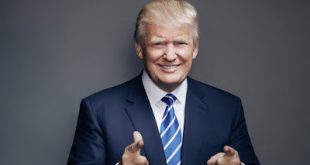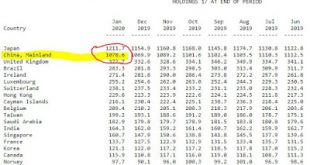Wow now going full Darwin and open season on New York people ...Mike's not leaving and is riding it out at ground zero in NYC... he's chronicling some of it on his Insty here: https://www.instagram.com/stories/mikeydoggy/So this is where we are in America:Starting tomorrow, the Rhode Island law enforcement and the National Guard will knock on doors and stop cars to find New Yorkers.Pray tell, will they give us stars to wear if they find us?https://t.co/Bs8IyLc9Jp— Amy Siskind ?️?...
Read More »46,000 store closings
This "virus!" thing just accelerating the already projected retail closings ... CMBS have to be in BIIIIIIIGGG trouble... I don't see how Treasury's $400B of Fed guarantees is going to cover it... unless Fed plans on spending 25 cents on the dollar to begin with... How U.S. retailers are closing stores in the U.S. over coronavirus concerns https://t.co/tGznu3jwRt— Bloomberg Economics (@economics) March 28, 2020
Read More »Bernie: “its Bill Gates’ money”
Ok we know Bernie is stupid.. ok... but here's the thing...How stupid are you when you have Trump saying below "Its our money... its our currency" doesn't think its Bill Gates' money obviously... BUT THEN, you support Bernie anyway!THAT is EVEN MORE stupid than being Bernie in the first place...Taxing Bill Gates $100 Billion, Counters Bernie Sanders, Could End Homelessness and Microsoft Founder 'Would Still Be a Multibillionaire'https://t.co/jhGy1LIk69— jordan (@JordanUhl) November 7, 2019...
Read More »What is ‘Reality’
This from the video examining 'Reality' below:[embedded content] What turns percepts and concepts into knowledge ... is judgement... answering the question "is it true?"... The Liberal Art/Platonist methodology continuously trains our people to NOT apply judgement...they are instead trained to synthesize.... this is the main problem humanity faces today... and why we continuously see the same people making the same mistakes over and over and over and over....These people are trained to...
Read More »Will US helicopter money be effective? Yes, it probably will.
This week President Trump proposed sending Americans $1,000 checks. Such a direct stimulus is also known as ‘helicopter money.’ Not all Republicans were enthusiastic about this idea. For example, Senate Appropriations Committee Chairman Richard Shelby said “I don’t know the logic of that.” In this note we take a closer look at the economic logic behind helicopter money. Based on our analysis, we expect this to be effective in slowing down a sharp decline in consumer spending, although it...
Read More »Links — 27 Mar 2020 Part 2
Mint Press News With a Quarter of the World’s Population Under US Sanctions, Countries Appeal to UN to Intervene Alan Macleod People's DispatchFormer Venezuelan soldier reveals plan to assassinate Nicolás Maduro Brasil de Fato SputnikEx-Venezuelan General Indicted in Narco-Terrorism Case Surrenders to DEA Agents - Reports The GrayzoneTrump admin’s $15 million bounty on Maduro triggers explosive confession of violent Guaidó plot Leonardo Flores SputnikRussia to Continue Supporting...
Read More »This week in OPEC
You thought YOU had a bad week...Here US Senators telling Saudi they have to abandon it: My colleagues and I have asked Secretary Pompeo to urge Saudi Arabia to leave the antique OPEC cartel immediately and join the U.S. as a free market energy powerhouse. https://t.co/hu10JxlOkp — Sen. Lisa Murkowski (@lisamurkowski) March 26, 2020 Getting ready to roll up their member with the largest reserves in the western hemisphere pretty soon... there is going to be one less BIG place setting at...
Read More »Trump: “its our currency”
hahahahhaahhahaha!!!!!!!Well, there’s that. “It’s our money. It’s our currency.” We can do whatever it takes. pic.twitter.com/FPPIJsxXMa— Stephanie Kelton (@StephanieKelton) March 27, 2020
Read More »Just take China’s USDs as compensation for the virus
To build upon the previous post ie "its our currency"...Here just take this USD balance highlighted here that the Chicomms have accrued and just ... ZERO it the f_ck out... Then we call it "even!"... Trump has no balls if he doesn't hit this account on them for what they are putting us through...
Read More »The Coronavirus Does Not Discriminate; Unfortunately Our Economic System Does — Thomas Masterson
Without stronger and more direct action, the fallout for the most vulnerable will be even worse and the gaps between rich and poor, whites and non-whites in the US will grow even larger. Rather than subsidies for corporations with no oversight why not help state governments fill their budget shortfalls? During the Great Recession, too little was done to help states and they responded by cutting the things that could make a difference: education and healthcare. Cutting back on these things...
Read More » Mike Norman Economics
Mike Norman Economics


